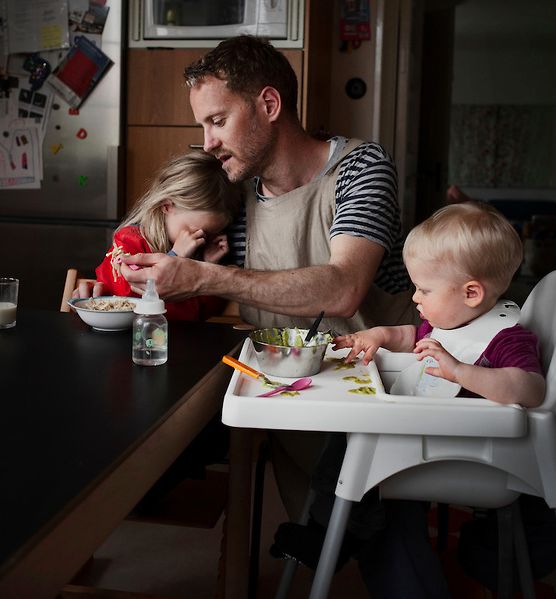 Supporting your child to develop a healthy relationship with their food
Supporting your child to develop a healthy relationship with their food
From the first day a child is born, parents feel consumed by their role to care for their child, and feeding them is a big part of that responsibility. When we feel confident that our child gaining the healthy food and nutrition that they need to thrive, we can relax. When we’re not so confident that they’re getting all the nutrients they need, it can become very stressful and cause parents a LOT of worry!
Just one more spoonful and then you can…
When a parent worries about what, when and how much a child is eating, their fears can lead them to try all sorts of persuasion tactics, from pleading with them to try just one tiny weeny little taste to threats that if they don’t finish what’s on their plate, there’ll be no dessert. Parents can dramatise their praise of a sibling who’s happily polishing off their plate. Some parents try incentives like a reward for trying a food they’re adverse to. Sure, we can encourage our child, and work to attune to the foods they like more or less.
But trying to change a child’s mind about their food is unlikely to be successful and can create unnecessary power struggles. The parent applies pressure and gets frustrated, escalating to expressing quite a lot of annoyance and frustration. The child will likely feel pressured and coerced and all those feelings can negatively impact their relationship with food. The parent continues to see that the problem is their child’s resistance to their food, but in my experience of helping parents of young children who are picky eaters, or older children with eating disorders, when really unpacked, it generally becomes apparent that the parent’s anxieties, anger and sense of powerlessness (relating to their own history) generally played a big part in the problems developing in the first place.
You might also like to read Dissipating Power Struggles for more ideas on bringing back connection and cooperation to an issue that has developed into a charged power struggle.
When the child experiences distress relating to conflicts with their parent on the topic of food, these feelings quickly become associated with food, at quite a body instinctive level. Even the mention of it being time to sit and eat can evoke stress in the child, and they become resistant. Eating is such an intrinsic part of life, such a big part of the enjoyment of life, and family togetherness and shared experiences. When conflicts develop around food, that tension can sadly create a very negative impact on the child’s relationship with food, and their enjoyment of joining the family to eat, which is a big part of daily family life. And if those tensions continue, there is the risk of the child later developing an eating disorder.
It IS really hard for a parent to maintain a calm, confident and level tone when worried about their child getting the nutrients they need, but the most important message I can give is that how you manage your feelings around your child’s eating is the single most important factor in determining whether a bigger problem develops or no
Stress or anxiety can interfere with appetite and healthy instincts.
Anything you can do to relieve your child’s tensions around food can help to improve their relationship with food. When a child has a positive relationship with food there’s no stress or anxiety to distort their as well as their appetite! Children can feel cornered and powerless when encouraged to eat food that doesn’t appeal to them, or pressured to finish their food when no longer hungry, especially when their refusal elicits their parent’s annoyance. But bringing some humour and goofiness to the table can be hugely relieving and fun! You could, for instance, try slouching down at the table and dramatically and childishly protest about the “yucky” food on the table, it shouldn’t take long before your child gets into it and will likely tell you to “eat up and don’t complain” with a pointing finger and big giggles! When a parent playfully takes the less powerful role, it serves to help relieve a child of feelings of powerlessness and frustration relating to being told what to do and not do so much of the time.
4 year old picky eater – what worked in the end! Stacey is a parent who sought my help with the power struggles she was having with her 4 year old daughter, who was a very picky eater. Stacey tried but struggled to stay calm and patient. She could relate to how awful her daughter must feel when her mum was upset with her because Stacey remembers the dread she felt when her father regularly got angry at her for not finishing her food when she was a child. Stacey blames those food battles with her father for the ongoing battles she’s had with weight and an eating disorder ever since she was a teen. She felt she’d tried everything to get her daughter to eat.
I suggested she bring some play and humour into the situation, explaining that her daughter’s fear of mum getting annoyed with her was contributing hugely to her daughter’s resistance. Stacey said that her daughter always wanted to take her dolls to the table but she didn’t allow it and asked if this could help. I thought that was a great idea and suggested she used the dolls to do some silly role playing mimicking the mother-daughter squabbles around food. The next day Stacey rang me excited to report that her daughter loved mum being silly and goofy and laughed so much, continuing to ask for more. Mum played with playfully threatening to steal her girl’s food and her daughter protested “no! It’s mine” pulling the chopped up meat and veggies back off the mum and heartily eating them!
Fun and laughter are the best medicine
You can greatly help a child loosen the tight knots of fear and aversion that they feel by diluting those uncomfortable feelings with some lighter feelings. Children instinctively know how to get stressful feelings out of their body and some of the ways they do it is through crying, raging (or passionate venting), trembling (if they’re releasing big fears) and through play and laughter. When children have felt inhibited from expressing their true feelings, perhaps their complaints around food, or their crying or their play relating to food, they may have felt further powerless to change those difficult feelings. Involving children in cooking can also help them develop a positive relationship with food, especially if they have a say in deciding what to cook or bake, as well as being involved with making it. This can really help them to enjoy food more. Especially when cooking/ baking together results in an overall positive experience, it can also help to break down any parent-child power struggles that have developed.
Are your expectations realistic?
Sometimes food issues are created through a mismatch between the child’s choices and needs around food and the parent’s expectations. It’s important that a child develops their autonomy over their own body, including being able to follow their natural instincts around food choices and appetite. Although most adults eat three main meals a day, this isn’t necessarily what works best for a young child. It’s normal for some children to form strong attachments and strong dislikes to certain foods, which they mostly grow out of. Some children benefit from eating a little and often and are simply not interested in eating a main big meal. It’s also normal for young children to go through phases when they want and need to eat a lot more than usual, similar to the growth spurts of the baby.
Trusting our child to trust their instincts
Studies have shown that when given the opportunity to self-select their food from a range of healthy options, choosing what and how much to eat, they tend to make choices that are overall beneficial to their health. And that they will naturally self-regulate when they’ve eaten too much of a certain food or type of food. Young children can generally be trusted to choose a balanced diet as long as a range of healthy food options are available to them throughout the day (Ref: Hirshmann & Zaphiropoulos, 1985 “Are you hungry?”. Note there most recent edition is called Kids, Carrots, and Candy). And we also have to be really honest about whether the child really does have enough access to the truly healthy whole foods. When given a good range of choices, children generally return back to healthy choices. For instance, if your child goes through a stage of being only interested in toast or pasta, you can continue to put out plates of chopped up fruit, carrot sticks, hummus, nut butters, smoothies and child-friendly salads. With the absence of pressure, children tend to return back to including healthy choices. Sometimes small changes can make otherwise more bland food more appealing. For instance, to make salads tastier and improve the texture, a spoonful of mayonnaise (the healthiest option you can find) mixed through it can make a big difference. Some children love lots of sweet grated carrot and/or beetroot with raisins in their salad, chopped nuts or toasted seeds. Sautéed onions and mushrooms cooked in coconut oil can bring a naturally sweet flavour to salads and veggies. Also, a child’s instincts can be interrupted because of a build-up of stressful emotions around food relating to tensions between parent and child around food, or can even go back to difficulties with feeding when they were a baby, in which case, all the advice relating to helping to relieve your child of tensions relating to food can have an inch by inch therapeutic effect.
Avoid using food as a bargaining power
Children can develop a distorted relationship with food if food is regularly used to reward them for good behaviour (e.g. “you’ll get a cookie when you’ve put all the toys away”), to distract them from negative behaviour (e.g. “If you kids stop squabbling now, you can have a treat”) or distract them from expressing unwelcomed feelings (e.g. don’t cry, come and have a glass of juice, that’ll cheer you up”). Distracting children from feeling and expressing emotions can start from birth onwards if a parent isn’t attuned to the differences between a cry that expresses hunger, tiredness or other as opposed to the need for a stress releasing cry (in a caregiver’s loving arms). When such habits are formed, children can crave unhealthy foods as a way of feeling better and when this is the case, carrot sticks just don’t hit the mark!
For the child who has developed a difficult relationship with food, for whatever reason, the sights, textures, smells and tastes of food can cause them to cringe and make them feel very grumpy. Instead of togetherness at mealtimes, they can feel trapped. To help a child improve their relationship with food, it really helps to try and imagine their feelings and show them that you can see, understand and care for them in those feelings. If you’re a food lover, to relate to how a child may feel, you can try to imagine how it would be to feel coerced into eating that which would be quite disgusting for you, a food that makes your face wince and your whole body squirm. Then to be told that it’s yummy and good for you! Making a commitment to avoid words or actions that make your child feel forced, coerced, blamed and rejected relating to their food choices can be a big step in the right direction. Remembering that you won’t change their mind until you help them change their feelings is a key element in helping a child unwind out of the knots of tension that prevent them from having an enjoyable relationship with food.
Empathy, patience and understanding really can help a child who generally gets tense around food, to feel more relaxed. Perhaps when you notice yourself feeling very stressed and frustrated with your child, try to imagine that they are likely feeling some similar feelings and try some empathy; “oh my boy, I can see this is hard for you isn’t it, it’s no fun when we argue about food, let’s start again”.
Many children are relieved of aversions when their feelings are heard and cared for
So, if your child looks at the food on his plate, and breaks down crying with disappointment and frustration, see it as an opportunity for him to release some of his backlog of pent up frustrations around food in general and if you can prioritise becoming present, listening and showing him that you can truly hear, accept and empathise with those big feelings, you’re helping him release some layers of deep-seated tension. The healing that a child experiences when they feel truly heard and understood brings benefit that can’t be gained from them crying without receiving that support. Reducing conflicts between parents or other family members at the table can also make mealtimes more inviting.
Addressing your own issues with food
Anything you can do to relieve your own tensions on the subject of your child’s eating is likely to have a positive knock-on effect on your child and their feelings around coming to the table or bench to eat. And at the very least, gaining emotional support and releasing some of your own tensions through talking, and even crying, can recharge your batteries and give you renewed energy and perspective to once again deal with your child’s food aversions. It may or may not be a coincidence that with about 95% of the parents who have sought my help with their child’s eating habits; it has come to light that they themselves have had quite big emotional issues around food, diet and body image. Many have had an eating disorder at some point. These parents have realized that further addressing those issues is an essential part of feeling less scared, hence less reactive, with their child.
Allergies and food sensitivities
Other angles to explore can be allergies and intolerances to some of the food in your child’s diet, or perhaps it’s the combination of food that could be causing trouble with digestion and hence affecting how your child feels about the food. It’s important to fully explore diet, perhaps talk to your GP about allergy testing or a dietician to help you review your family’s diet in general.









Hi, thank you for a great article!
Can you give me an advice on what to do with a picky four year old who does not want to eat by himself, but rather wants me to feed him? If I feed him, he would eat most of the food, but if he needs to eat by himself, his plate remains full. Of course, he is able to feed himself.
Is it wrong to feed a four year old?
Thank you!
[…] You might also like to read: Food, mood, picky eaters, food battles and sugar cravings. Also When the meal table becomes a battleground. […]
[…] many of the battles around dressing, eating, bathing, brushing teeth and car seats stem from the child tensing up in nervous anticipation. They […]